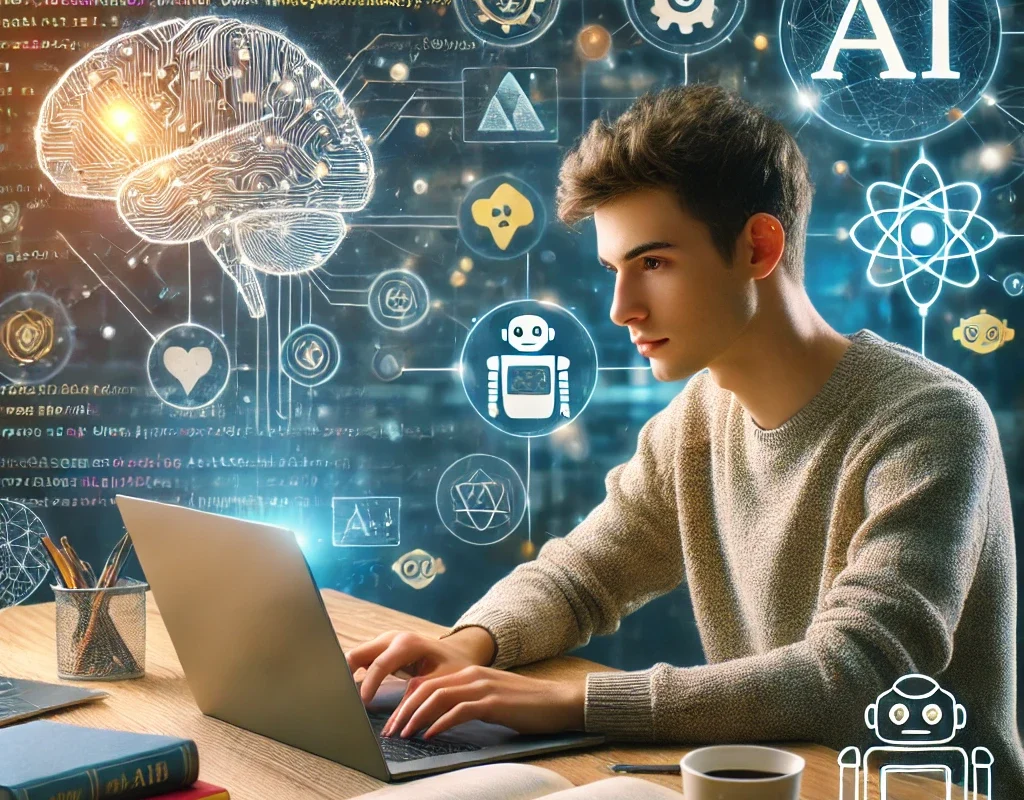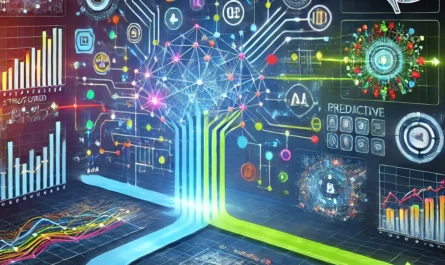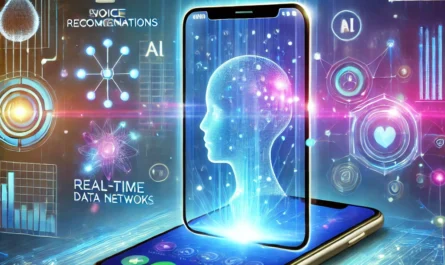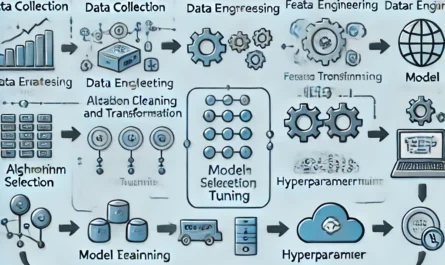Artificial Intelligence (AI) is rapidly becoming a transformative force across industries, impacting everything from healthcare to entertainment. For beginners eager to dive into this exciting field, the process of learning AI may seem daunting. However, with the right guidance and tools, anyone can start exploring the world of AI and build the skills necessary to innovate and excel in this domain.
Understanding Artificial Intelligence
Artificial Intelligence refers to the ability of machines to perform tasks that typically require human intelligence. From speech recognition to decision-making, AI covers a wide spectrum of functions. It includes various branches like machine learning, natural language processing, and neural networks, which all contribute to creating smarter and more efficient systems.
The Different Branches of AI
AI is not a singular concept; it encompasses several branches that work together or independently. The most common areas include:
- Machine Learning: The process of teaching machines to learn from data without being explicitly programmed.
- Deep Learning: A subset of machine learning that uses neural networks to simulate the human brain and perform complex tasks.
- Neural Networks: Models inspired by the human brain’s structure that enable machines to recognize patterns and make decisions.
Understanding these branches is crucial for beginners as they provide the foundation for most AI applications.
The Importance of AI in Today’s World
AI is reshaping industries and economies, and it’s influencing how we live and work. From self-driving cars to intelligent virtual assistants like Siri and Alexa, AI’s impact is everywhere. AI helps companies optimize operations, enhance customer experiences, and innovate new products. For personal lives, AI tools and applications are simplifying tasks, improving productivity, and even helping with health management.
Why Learn Artificial Intelligence?
Learning AI opens up a world of opportunities. As businesses increasingly rely on AI to drive innovation, professionals with AI skills are in high demand. Whether you aim to become an AI developer, data scientist, or simply use AI to solve problems in your field, the ability to understand and work with AI technologies offers significant career growth.
Skills You Need to Start with AI
Before diving into AI, it’s essential to have a solid foundation in certain skills:
- Mathematics: AI relies heavily on algebra, calculus, probability, and statistics.
- Programming: Knowing how to code is critical for developing AI models. Python is the most recommended language for beginners.
- Problem-solving: Logical thinking and the ability to break down complex problems are essential for developing effective AI solutions.
Building these skills gradually allows you to move from basic AI concepts to more advanced applications.
Common Misconceptions About AI
Many beginners are discouraged by misconceptions surrounding AI. Some believe that AI is only for advanced computer scientists or that it’s impossible to understand without a Ph.D. In reality, AI is accessible to anyone with the right resources and willingness to learn. With the growing number of online courses and tutorials, even someone with no prior experience can start learning AI.
Choosing a Programming Language for AI
Programming is a crucial part of AI development. While there are several programming languages you could use, such as Java, C++, and R, Python stands out as the best option for beginners. Python is known for its simplicity, extensive libraries, and strong community support, making it the ideal choice for developing AI algorithms and models.
Python: The Go-To Language for AI Beginners
Why is Python such a popular language for AI? First, its clean and easy-to-understand syntax allows beginners to focus on learning AI concepts rather than struggling with complex code. Second, Python has powerful libraries specifically designed for AI, such as TensorFlow, PyTorch, and Keras. These libraries provide the necessary tools to build and train AI models efficiently.
Tools and Libraries to Start AI Development
Once you have a solid understanding of programming, it’s time to explore the tools that will help you build AI models. Here are some of the most popular AI libraries and frameworks:
- TensorFlow: Developed by Google, this open-source library is widely used for machine learning and deep learning.
- PyTorch: A flexible and easy-to-use framework by Facebook that’s gaining popularity among AI researchers.
- Keras: A high-level neural networks API that runs on top of TensorFlow, simplifying the process of building AI models.
These tools are beginner-friendly and have extensive documentation to help you learn and troubleshoot as you go.
The Role of Mathematics in AI
You can’t escape math if you want to learn AI. AI algorithms rely heavily on mathematical concepts such as linear algebra, calculus, and probability theory. If you’re not confident in your math skills, it’s a good idea to brush up on these areas before getting too deep into AI. There are plenty of online resources and tutorials that explain these concepts in the context of AI development, making it easier to understand how they apply to the field.
You can also read; How to Leverage Video Marketing for SEO Gains
Learning Machine Learning as a Foundation for AI
Machine learning is the backbone of modern AI, and learning its fundamentals is essential for anyone starting in the field. Machine learning involves teaching algorithms to recognize patterns in data and make decisions based on those patterns. As a beginner, you should start with supervised learning, where models are trained on labeled data, and then move on to unsupervised learning, where the algorithm identifies hidden patterns in unlabeled data.
The article will continue building upon these foundational topics, ensuring a comprehensive guide to how to get started with artificial intelligence as a beginner. It will cover more advanced aspects, such as datasets, AI ethics, community building, and real-life applications, while offering detailed explanations, best practices, and next steps for further learning.



